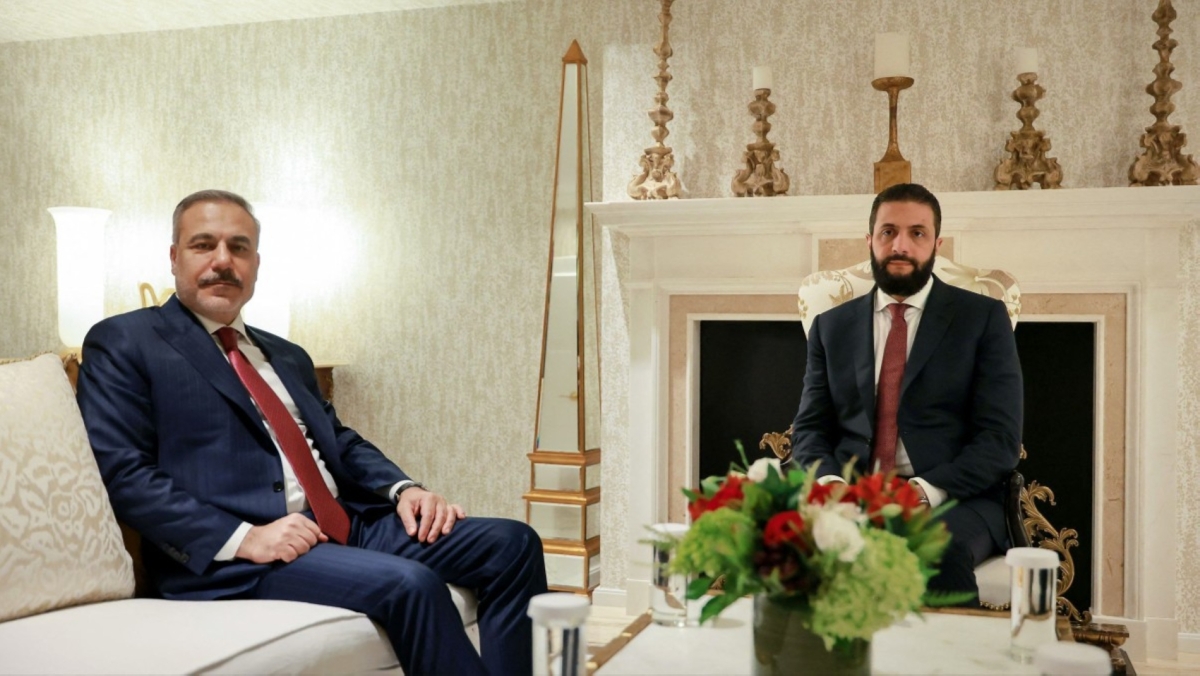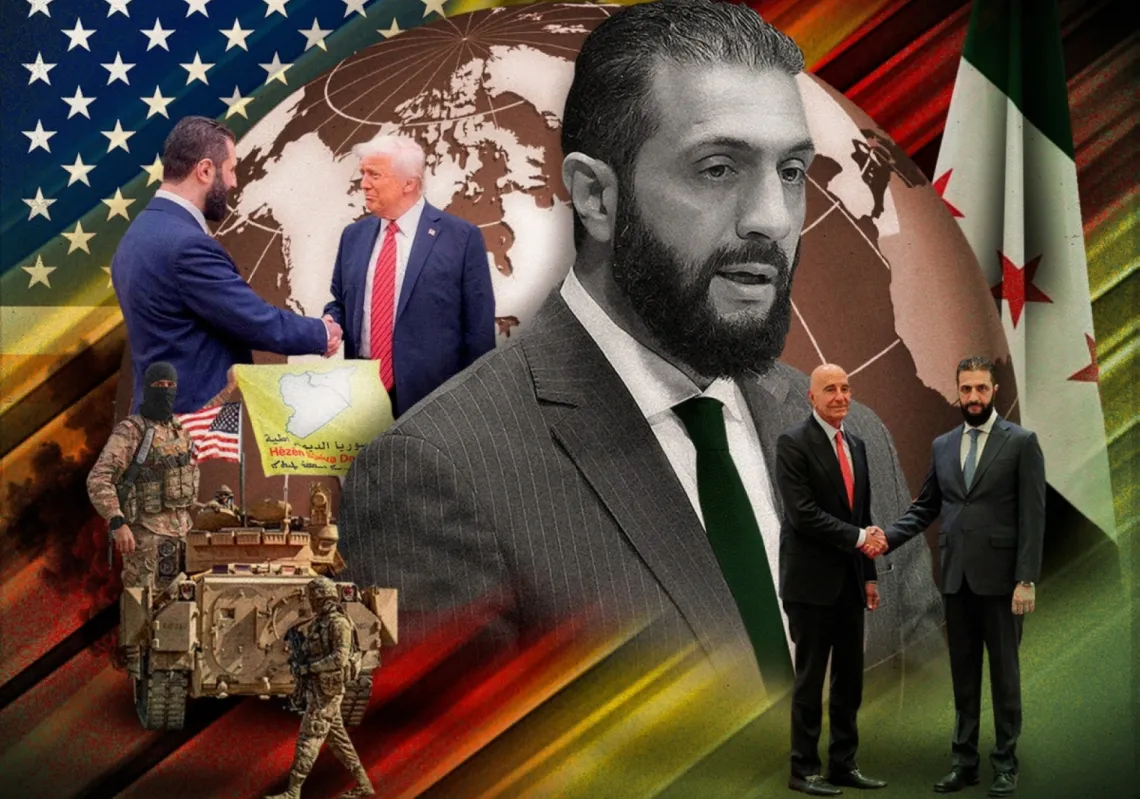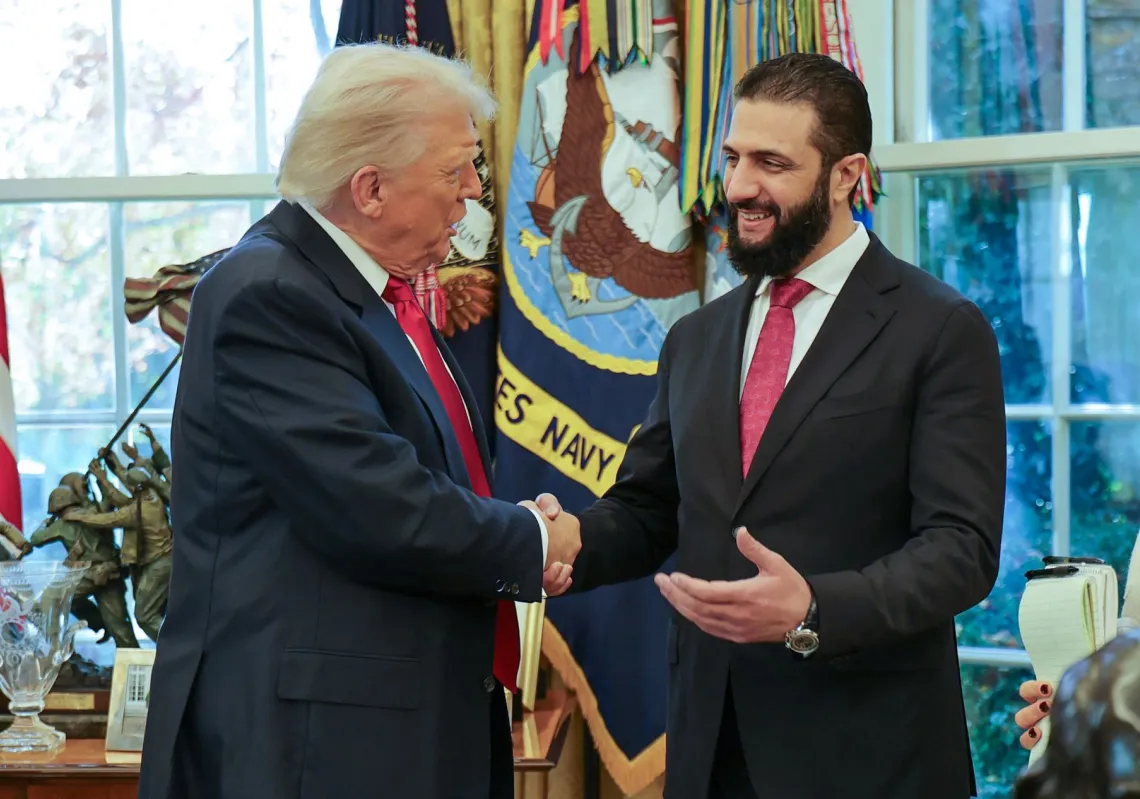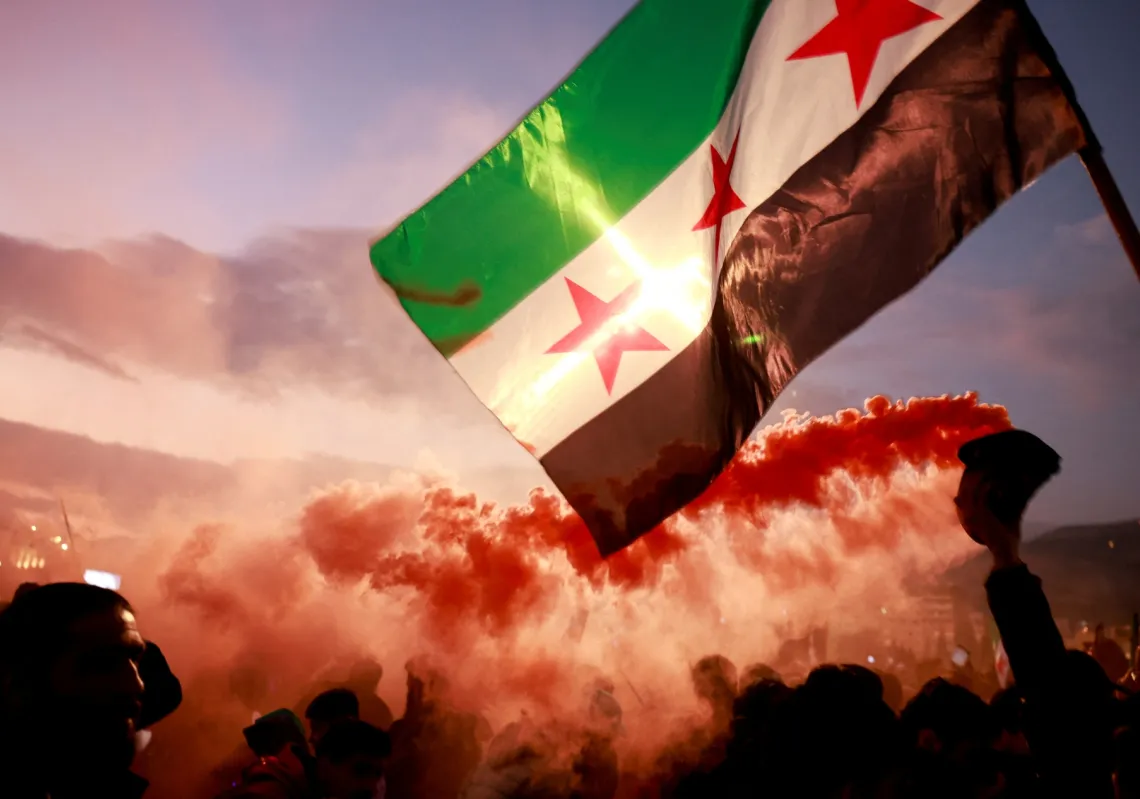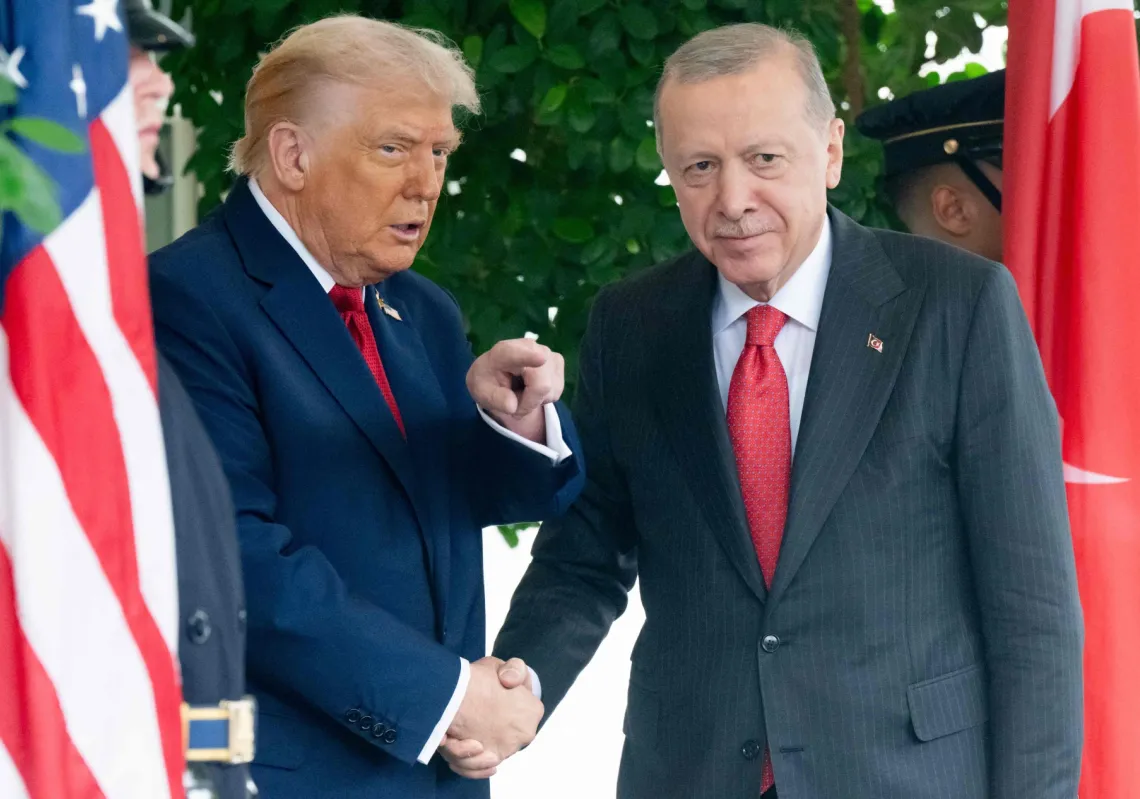US President Donald Trump’s hosting of Syrian President Ahmed al-Sharaa at the White House on 10 November was a landmark moment for the country and for a former jihadist who, until recently, was on America’s ‘most wanted’ list of international terrorists, with a $10mn bounty on his head. Trump greeted al-Sharaa with warmth and humour, calling him “a tough man in a tough neighbourhood”. He pays similar compliments to leaders he admires, including China’s Xi Jinping, Russia’s Vladimir Putin, Türkiye’s Recep Tayyip Erdoğan, and Hungary’s Viktor Orbán.
Rebranded as a statesman, al-Sharaa is now seeking new Syrian allies, as he begins to rebuild the state following 50 years of Assad family rule. Both the region and Washington appear to have given him the benefit of the doubt, lending him political credit in the quest to lay new foundations. Al-Sharaa is pragmatic and knows the importance of public relations, as evidenced by the Syrian army’s recent raids on Islamic State (IS) cells, displays of coexistence and tolerance towards Syria’s Christian community, and meetings with Syrian Jews.
The most concrete outcome of the Trump-Sharaa meeting was Syria’s announcement that it would be joining the international coalition against IS. One of the most important discussion points, however, was the integration of armed Syrian Kurds (the YPG) into the newly reconstituted national Syrian armed forces. Talks are expected to resume next week. There was some fresh progress on the lifting of sanctions, but Caesar’s Law of 2019 needs to be repealed by the US Congress.
Sticking points
The two leaders discussed the prospects of signing a security agreement between Syria and Israel. Al-Sharaa said Syria wanted good relations with Israel and revealed ongoing direct talks, but said an agreement could not be signed when Israel had expanded its occupation to cover all of the Golan and further Syrian territory beyond. The US is understood to have agreed to speak to the Israelis.
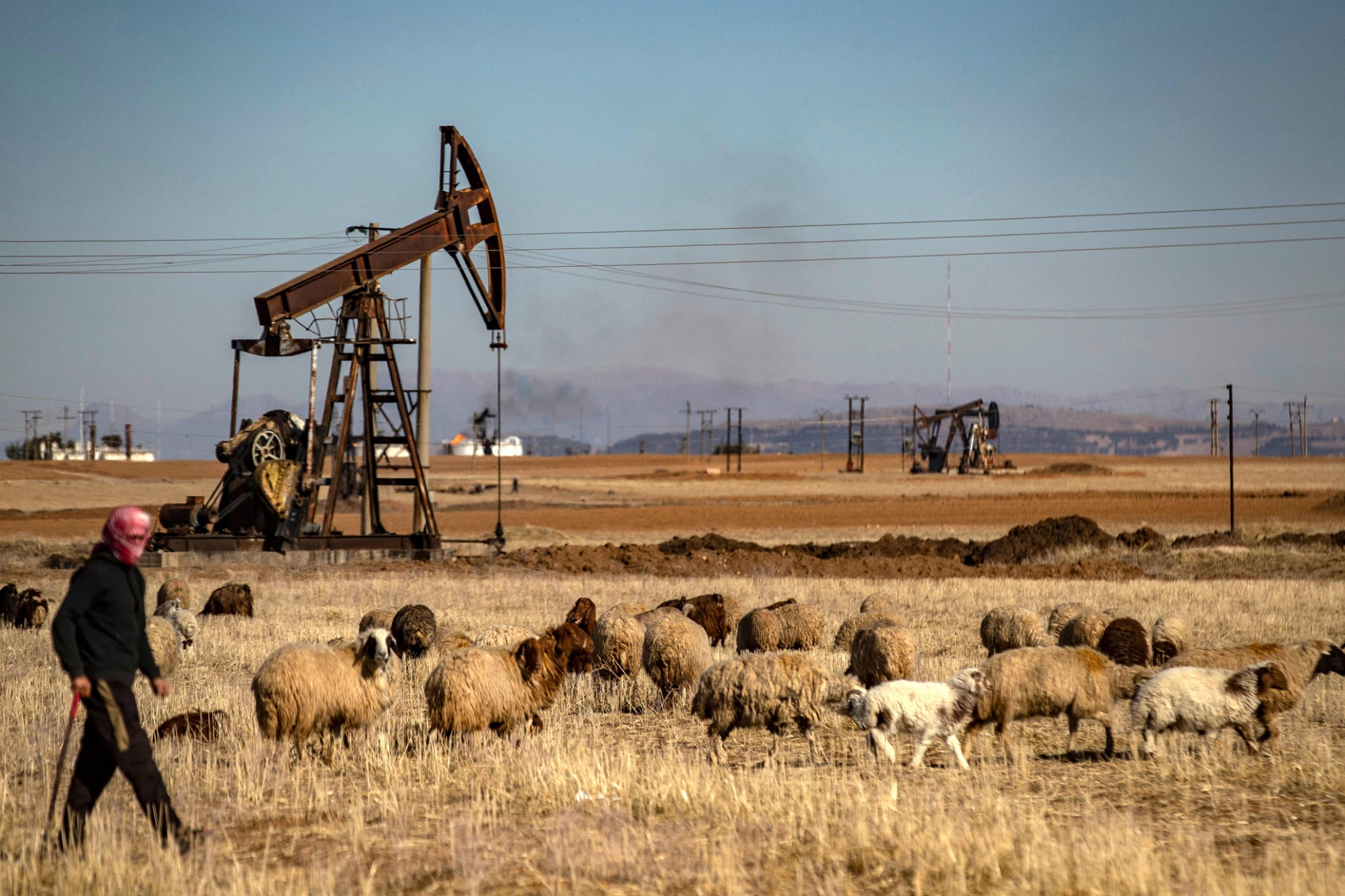
Also discussed was the future administration of Syria, including its oil resources. Syrian oil fields are mainly in the country’s north-east, which is currently controlled by the Syrian Democratic Forces (SDF), which is mostly comprised of Syrian Kurds. Oil revenue does not currently flow to Damascus, but it needs to if the country is to rebuild. In a report published on 21 October, the World Bank estimated that Syria’s reconstruction will cost a staggering $216bn.
A surprise element of Syrian President Ahmed al-Sharaa’s visit to Washington was the presence of Turkish Foreign Minister Hakan Fidan, who had been invited by Trump. Türkiye has been a key supporter of al-Sharaa and his forces, who overran Assad’s army in November and December 2024. As a result, Ankara has a say in the future of Syria—not least because it sees armed Syrian Kurds as a national security threat.
Fidan attended part of a meeting with Trump and al-Sharaa, and later met US Secretary of State Rubio, Syrian Foreign Minister Asaad al-Shaibani, US Special Envoys Steve Witkoff and Tom Barrack, and US Vice President JD Vance.
Türkiye wants to end the terrorist activity of the outlawed Kurdish group PKK and considers the YPG to be the PKK’s Syrian branch, even though the YPG has been a staunch partner of the United States (Türkiye’s NATO ally) for a decade, centred around the fight against IS. Türkiye and the US disagreed over the YPG during the Biden administration, but Trump is on good terms with Erdoğan and wants Türkiye to assume an important role in Syria.
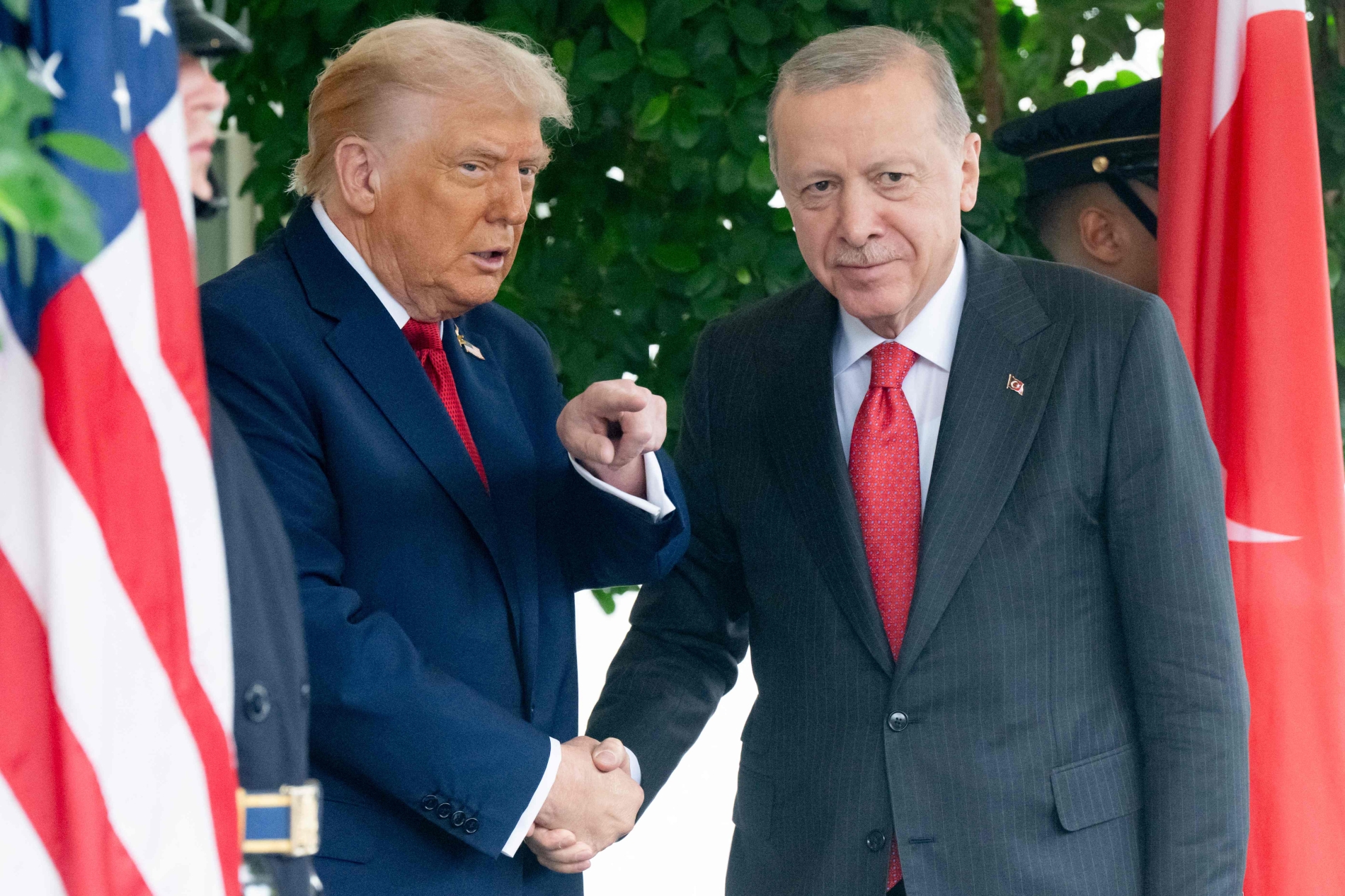
Legitimising the SDF
Trump’s White House seems to be legitimising the SDF by embedding the SDF/YPG into the Syrian army. Fidan’s presence in Washington alongside al-Sharaa shows that Türkiye will play a key role, along with the US, in post-Assad Syria. The YPG and Israel will also be involved in discussions, perhaps indirectly or less publicly.
US Special Envoy for Syria Ambassador Tom Barrack said the meeting between Rubio, Fidan, and al-Shaibani was a “pivotal follow-on trilateral session,” adding: “We mapped the next phase of the US-Turkish-Syrian framework: integrating the SDF into the new Syrian economic, defence and civic structure, redefining Turkish-Syrian-Israeli relations, and advancing the alignment that underpins the Israel-Hamas ceasefire.”
Fidan’s invitation is being seen by some as the White House wanting to know that Ankara is on board, because Syria’s Kurds are crucial to the country’s rebuilding. They were suppressed during the Assad era, with many not even being issued identity cards and denied citizenship. The Syrian civil war that erupted in 2011 gave the Kurds the opportunity to organise politically and militarily, and after 2014, the US gave them training and equipment.
Ever since the fall of the Assad regime just under a year ago, the SDF has declared that it will not give up its autonomy. At the same time, the Kurdish-led group rejects the notion that Kurds are separate from Syria. They accept that they fall within Syria's territorial integrity, but insist on having a decentralised administrative system, their own armed forces, and a good share of the oil revenues.
After the Trump-Sharaa meeting, SDF Commander Mazlum Abdi took to social media to say he had a very good call with Tom Barrack about the White House’s conclusion, stating the SDF’s commitment to accelerating integration into the Syrian state. Various sources have said that the two sides (Damascus and the SDF) will meet as early as next week under US supervision and facilitation.
Thank you to President Trump @POTUS for his leadership on Syria and for giving the Syrian people a chance for greatness.
I just had a wonderful phone call with Ambassador Tom Barrack @USAMBTurkiye to discuss the outcomes of the meeting with President Al-Sharaa in the White House...
— Mazloum Abdî مظلوم عبدي (@MazloumAbdi) November 11, 2025
Salih Muslim, a senior official from the PYD, the political wing of the YPG, noted that Fidan's presence and participation in Washington could now be seen as Türkiye's tacit acceptance of the 10 March agreement between Damascus and the SDF. To date, however, Turkish officials have said only that the PKK and YPG must disband.
According to officially unconfirmed reports, the YPG will likely join the Syrian army in the form of one or two divisions and two brigades. These units will be deployed in the north-east and east of Syria, but at least one unit will be earmarked for fighting terrorism and could be deployed nationally. Some YPG leaders will also get high-ranking positions in the national army. This agreement—which lets the YPG retain its armed formations, commanders, and weapons—runs contrary to Türkiye’s demands, because far from being disbanded, the armed Kurdish units are in fact being legitimised.
There is also the issue of voluntarily disarming PKK militants in Türkiye and northern Iraq. According to Reuters, Türkiye is working on a deal to let around 8,000 PKK militants return home from hideouts in northern Iraq. Some of these fighters may prefer to return to Syria, possibly joining and strengthening the YPG’s ranks.


